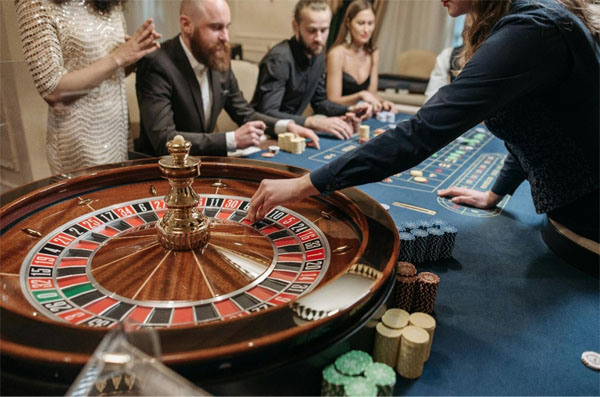Can You Spot a Biased Roulette Wheel? Myths vs. Reality
By Space Coast Daily // March 3, 2025

Can a roulette wheel demonstrate any form of partiality? People believe they can notice irregularities or periodicity to achieve success against the casino. The gambling dream exists only in the imagination of some people.
The article investigates real and imaginary indications of biased roulette wheels to help you understand their actual existence.
What is a Biased Roulette Wheel?
A roulette wheel is designed to spin randomly, so every slot has an equal chance of being hit. But what if it doesn’t? Defects within the wheel structure, either from imbalances or wear or design flaws, will create an unbalanced distribution of numbers during the game.
The idea is tempting, right? Identifying a biased wheel enables prediction of the result so you can achieve significant wins. Identifying a biased wheel proves to be more challenging than most people realize.
The Myth of the Skilled Spotter
The movie industry usually portrays a superior gambler who discovers an unbalanced roulette wheel to obtain wealth by outsmarting casino operators.
This idealized notion exists only in popular imagination as reality presents itself in a much more unglamorous way.
The process of detecting wheel defects requires both detailed observation and extensive data collection rather than the ability to see quickly.
Identifying wheel bias requires strict attention to hundreds up to thousands of spins before spotting statistical abnormalities.
Having both patience and a notebook would not help because modern casinos possess superior technological capabilities. Their equipment detection systems use advanced technology to maintain fair operations.
Casinos maintain their equipment rotation schedule to stop both planned and accidental patterns from forming or revealing themselves to perceptive gamblers.
The dream of locating a biased wheel and obtaining fortune remains an exciting storyline, yet the probabilities of achieving this outcome in reality remain practically nonexistent. Hollywood loves to present this story in its numerous films, even though it holds no basis in reality.
Real Instances of Roulette Bias
The concept of biased wheels exists in reality, and multiple documented cases demonstrate this fact. Historical records document several well-known cases of biased wheels.
One involves Joseph Jagger, an engineer in the 19th century, who tracked roulette outcomes in Monte Carlo. By noticing how the wheel distributed particular numbers, he accumulated a large fortune.
Another example? Gonzalo Garcia-Pelayo in the 1990s. Using his computer to analyze thousands of spins, he detected irregularities in Madrid’s casinos.
It worked—for a while. Casinos detected his strategy, which led to his permanent ban from their establishments.
But here’s the catch. Studies of these cases are noteworthy because their occurrences were exceptionally infrequent.
Casinos in the present day utilize extensive measures to provide players with fair gameplay opportunities. The establishments use advanced technological equipment to detect irregularities.
Research conducted on gambling random number generation and game integrity demonstrates that contemporary casino solutions produce exceptionally challenging conditions for detecting biases.
Why Modern Roulette Is Almost Foolproof
Casinos utilize strategic planning for everything regarding their gaming equipment upkeep. Regular inspections and strict building requirements define roulette wheel production standards.
All components, starting from the ball through the spindle and pockets, require exact balance.
Statistical software identifies every minimal wheel defect that occurs. Employees perform daily documentation of each game result. Anything suspicious triggers an investigation.
The casino conducts frequent replacements and repairs of all equipment. A suspected biased wheel will not remain available for long enough to validate your suspicion.
Confirmation Bias and Wishful Thinking
Human nature leads us to spot patterns that actually do not exist. It’s human nature. This is called confirmation bias.
Most times when you spot a number repeating frequently, it turns out to be pure luck rather than a consistent pattern.
Your attention to certain elements will make you more and more certain about them even when the evidence remains absent.
Playing roulette would not be half as exhilarating if it did not contain these elements. The randomness.
The unpredictable spins. The excitement of pattern searching doesn’t change the unfavorable odds that players face in the game.
Some Final Thoughts
A biased roulette wheel detection adds exciting elements to gambling entertainment. People are drawn to this concept because it represents a method to outsmart the game structure.
The existence of biased wheels occurred in history, although contemporary casino operators have eliminated their chance for success.
Visitors to casinos should enjoy their time playing for amusement. Save your time by not dedicating efforts to create strategies for finding wheel biases.
The advantage remains with the house at all times. Roulette offers an unpredictable experience, which makes the game entertaining, so you should just accept the excitement regardless of the outcomes.












